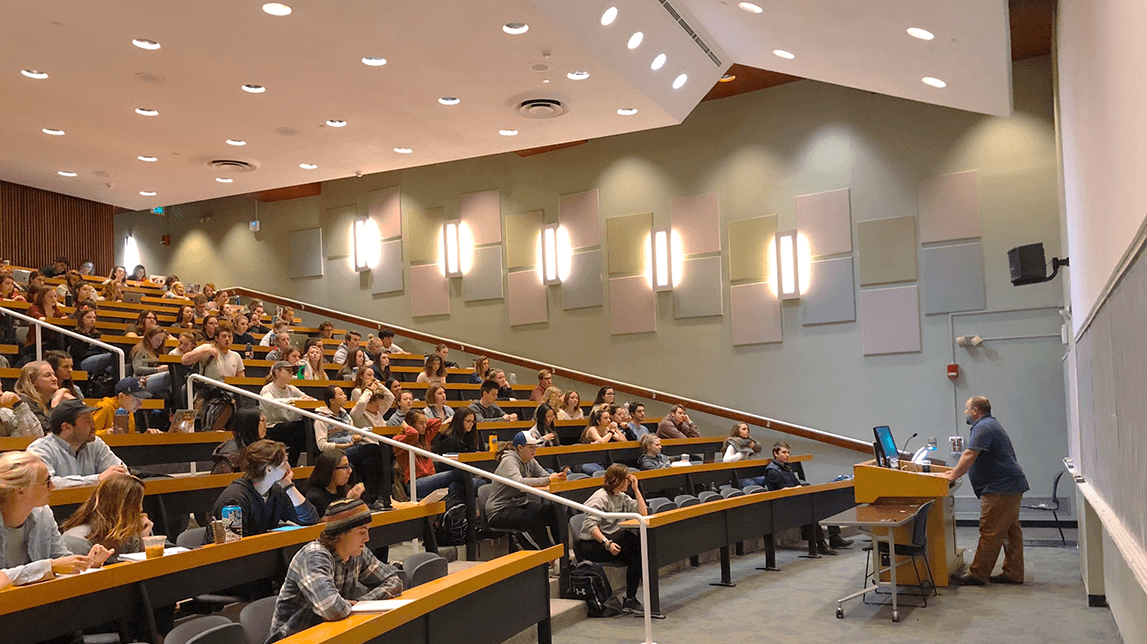Since arriving at UVM, Erik Ruggles has pursued a passion he first found in high school.
Ruggles, then a high school junior, was intrigued with the subjects covered by a charismatic chemistry teacher, especially inorganic and organic chemistry. He thought chemistry could be a career.
So, he earned a bachelor’s in chemistry from Ithaca College, and eventually he ended up at UVM in 2003 for a postdoctoral fellowship. He stayed here, becoming a senior lecturer in the Department of Chemistry, and a research associate professor in the Department of Biochemistry.
Ruggles’ research focuses on how molecules bind with enzymes in living things. Enzymes are proteins in the cell that facilitate chemical reactions, and each one has a specific molecule that activates it, like a lock and key. Ruggles and his colleagues want to see if by altering molecules, they can make certain enzymes react differently than normal. Ruggles alters the molecules; his research partner, Professor Robert Hondal, does the tests.
One example of what Ruggles and his team are working with is an enzyme called thioredoxin reductase. In a lot of cancers, this enzyme is produced in overwhelming amounts within the cancerous cell. At a certain point, too much oxygen builds up in the cell because of the enzymes, and the cell is programmed to self-destruct.
But that clearly isn’t the case because in cancers, cells continue to multiply and reproduce without any sort of regulation.
Ruggles and Hondal are trying to figure out if it is possible to prevent the effect thioredoxin reductase has on the cancerous cells. To do that, they modify the molecule that binds with that enzyme and see if it has any effect.
Not only does Ruggles play a role in the conduction of these experiments, but he has also played a role in recruiting many undergraduates to the research group. Often, these are students who have been his classes, such as Chemistry 031 and 032.
What inspires Ruggles to bring undergrads into the fold? “Keeping science ideas alive and producing students who will have the curiosity to continue the research,” he said.
